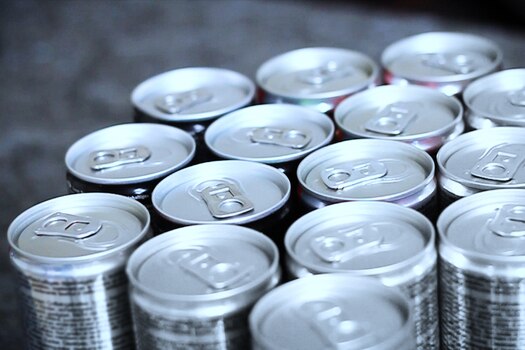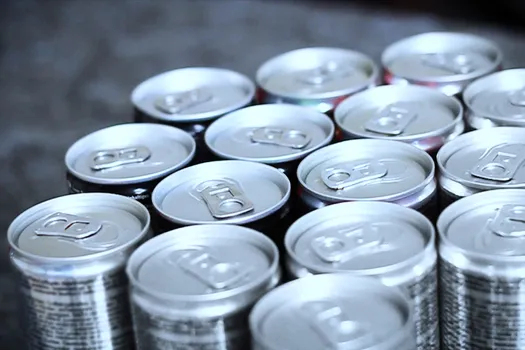Learn about brain health and nootropics to boost brain function
Energy Drinks: Quick Pick-Me-Up or Health Hazard?


June 26, 2019 -- As more people turn to energy drinks when they feel a little sluggish -- sales increased a whopping 5,000% between 1994 and 2014 -- many health experts are concerned that they are a more dangerous choice than coffee or other sources of caffeine, especially for teens and young adults.
Although people 18-38 are the biggest consumers of energy drinks, almost one-third of teens ages 12-17 use them on a regular basis.
Studies and case reports have pointed to worrisome links between energy drinks and a variety of health problems -- particularly heart troubles -- in young people. Whether they stem from caffeine, other ingredients, or a combination isn't clear, though high doses of caffeine alone can be toxic.
In recent years, at least two teenage boys have had heart attacks after having energy drinks, and at least another two got atrial fibrillation, a type of irregular heartbeat.
Sean and Heidi Cripe of South Carolina, whose son Davis died 2 years ago, have pushed for a bill to restrict the sale of these drinks to children under 18. Connecticut lawmakers have proposed a similar bill that would ban the sale of energy drinks to kids under 16.
Whether or not such bills become law, parents ought to advise their children to avoid these products, say health experts. Young adults need to be cautious as well.
"The AAP feels strongly that caution is warranted in advising youths and adolescents against using energy drinks regularly," says Holly J. Benjamin, MD, a professor at the University of Chicago and co-author of a policy statement from the American Academy of Pediatrics (AAP) on sports drinks and energy drinks. "The true effects and the doses that are the most dangerous are not known; therefore it’s hard to say whether any amount of the stimulant substances are truly safe in youths or adolescents. Seizures, heart conditions, and musculoskeletal injuries related to energy drink use have been reported."
The American Beverage Association says "caffeine is caffeine," and where you get it from doesn't really matter. This industry group says that energy drinks are safe if you drink them in moderation.
"If you're studying for an exam and have to pull an all-nighter a few times a year, it's probably OK" to have one, says cardiologist Robert Segal, MD, founder of Manhattan Cardiology. But most energy drink fans don't save them for special occasions, and users don't always stop after one can (or concentrated "shot"), either.
A key problem, says Segal, is that most energy drinks contain far more caffeine than a standard cup of coffee. An 8-ounce cup of joe has about 100 mg of caffeine. While some energy drink brands may contain a similar amount, others have more than 350 mg per can or shot.
"In small to moderate amounts, caffeine is good," because it can boost your mood and help you feel more alert, says Segal. "In large amounts, it leads to a decrease in the blood vessels' ability to dilate. If they constrict and narrow, your blood pressure goes up. If blood vessels are constricted and blood can't get through, it can cause heart attacks, brain attacks -- aka strokes -- and damage to other vital organs."
One recent study, published in the Journal of the American Heart Association, found that energy drinks also impact the heart's electrical pattern, which can be dangerous or even fatal.
A Mysterious Mix
If you're thinking that you'll just stick to a brand of energy drink that has about as much caffeine as coffee, you should know that it's not quite that simple. While the amount of caffeine is absolutely a concern -- caffeine can kill you if you take in enough of it in a short period -- experts also have major qualms about other ingredients commonly found in these products.
Sugar is a big one: While you might add a teaspoon or two to a cup of coffee, energy drinks often have 7 to 14 teaspoons, although many brands do offer a sugar-free version. Getting that amount of sugar from sweetened drinks on a regular basis has been tied to a higher risk of diabetes, obesity, and heart disease.
Energy drinks also have add-ins that are classified as dietary supplements. Energy drinks are the second most popular dietary supplement (after multivitamins) used by teens and young adults. Yet ingredients like guarana, taurine, and ginseng aren't supplements that most energy drink consumers ought to be taking.
"Ginseng has antioxidant qualities, which is nice, but if you're looking to improve your memory, you're better off eating blueberries or playing brain games," says nutrition strategist Jen Bruning, a registered dietitian nutritionist and a spokesperson for the Academy of Nutrition and Dietetics. "You have to keep in mind that when it comes to herbal supplements, these ingredients are not heavily regulated."
Bruning adds that guarana is a natural source of caffeine that doesn't have to be disclosed on a nutrition label; that means you might be getting more caffeine than you think in a serving.
"The FDA really hasn't looked at each product, so a lot of the evidence is anecdotal, but when you mix caffeine, sugar, ginseng, guarana, taurine, etc., it definitely adds up to more potential for bodily harm," says Segal.
Whether excessive amounts of caffeine or the combined effect of caffeine and other common ingredients is to blame, energy drinks are clearly harming some users. Reactions from these products have ranged from headaches and nervousness to heart problems and seizures. Emergency room visits related to energy drink use doubled between 2007 and 2011.
Although what's found in an energy drink itself may be problematic, things get even more risky when you add alcohol to the equation. Cocktails that use energy drinks have gotten more popular in recent years.
"Alcohol has depressive effects on the brain, and energy drinks have stimulating effects," says Segal. While you might assume that combining these substances provides some balance, that's not how it works. "It can make the person who's imbibing feel as though they're not as intoxicated as they really are," says Bruning.
This disconnect between how you feel and how impaired you are can be serious: People who mix alcohol and energy drinks are more apt than other drinkers to drive drunk or have unprotected sex, according to the National Center for Complementary and Integrative Health.
Kids at Risk
As concerned as many doctors and nutritionists are about how energy drinks might impact anyone who uses them, children and teens are considered to be especially vulnerable. Yet manufacturers continue to advertise on websites, social media, and TV channels that cater to children and adolescents. They also advertise at sports and other events that are popular with youths.
"Caffeine has effects on a growing body, from head to toe," says Benjamin. The amount of caffeine found in energy drinks can affect a child's brain, heart, muscles, and bone development.
Studies in the U.S. and in Sweden have also linked energy drink consumption to dental erosion in children, probably thanks to the high sugar content.
In the meantime, the AAP is very concerned that children are sometimes choosing these drinks because they're confusing them with electrolyte-containing sports beverages (like Gatorade) or because they're misled by the word "energy."
"Energy is good when it comes from natural, essential energy sources like carbohydrates found in fruits and vegetables." Benjamin says.
Click here to view full article